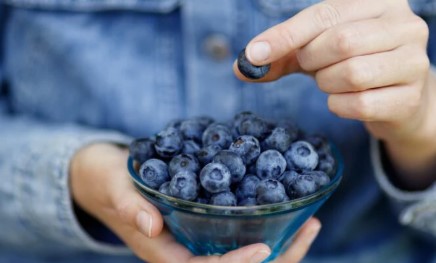
Table of Contents
In today’s fast-paced world, stress has become an inevitable part of life, often leading to elevated cortisol levels in the body. Cortisol, also known as the “stress hormone,” plays an essential role in regulating various bodily functions, including metabolism and immune response. However, prolonged elevated cortisol levels can have negative effects on health, including weight gain, poor sleep, and impaired immune function. The cortisol detox diet offers a potential solution for those looking to balance their cortisol levels and restore overall well-being.
What is the Cortisol Detox Diet?
The cortisol detox diet focuses on reducing cortisol levels through a combination of nutrient-rich foods, mindful eating habits, and lifestyle adjustments. The primary goal is to incorporate foods that support adrenal health and regulate the body’s stress response. By reducing the stress hormone, the diet aims to promote relaxation, better sleep, and improved energy levels, ultimately enhancing physical and mental health.
Key Principles of the Cortisol Detox Diet
- Eat Anti-Inflammatory Foods
Chronic stress can cause inflammation, which in turn elevates cortisol production. Incorporating anti-inflammatory foods into your diet can help combat this effect. Focus on consuming foods rich in antioxidants and omega-3 fatty acids, such as:
- Fatty fish (salmon, mackerel, sardines)
- Berries (blueberries, strawberries, raspberries)
- Leafy greens (spinach, kale)
- Nuts and seeds (walnuts, chia seeds, flaxseeds)
- Turmeric and ginger
These foods help reduce inflammation, support adrenal function, and promote a sense of calm.
- Opt for Balanced Blood Sugar Levels
Fluctuating blood sugar levels can trigger cortisol spikes. To stabilize blood sugar, choose foods with a low glycemic index that release energy slowly. This helps prevent cortisol surges caused by blood sugar crashes. Incorporate:
- Whole grains (quinoa, oats, brown rice)
- Lean proteins (chicken, tofu, legumes)
- Non-starchy vegetables (broccoli, zucchini, cucumbers)
- Healthy fats (avocados, olive oil, coconut oil)
A balanced blood sugar level helps maintain consistent energy and keeps cortisol levels in check.
- Reduce Caffeine and Sugar Intake
While caffeine and sugar can provide a temporary energy boost, they can also lead to an increase in cortisol production. Excessive consumption of these substances can disrupt your body’s stress response and cause cortisol to remain elevated. The cortisol detox diet recommends limiting caffeine and sugary foods, particularly in the afternoon and evening. Instead, opt for herbal teas like chamomile or peppermint, which have soothing properties.
Incorporate Stress-Reducing Nutrients
Certain nutrients have a direct effect on cortisol levels and can support adrenal health. Ensure you’re consuming adequate amounts of:
- Vitamin C: This vitamin is known to reduce cortisol and support the immune system. Include foods like citrus fruits, bell peppers, and broccoli in your meals.
- Magnesium: Magnesium helps relax the nervous system and reduce stress. Foods high in magnesium include spinach, almonds, avocados, and bananas.
- B Vitamins: B vitamins, particularly B5 and B6, play a vital role in regulating the stress response. Consume foods like eggs, lentils, and leafy greens to ensure you’re getting enough of these vitamins.
Lifestyle Habits to Support the Cortisol Detox Diet
While the right foods are crucial, your overall lifestyle also plays a role in cortisol management. Here are some additional tips to help balance your cortisol levels:
- Prioritize Sleep
Quality sleep is one of the most effective ways to regulate cortisol levels. Aim for 7-9 hours of sleep per night and establish a consistent sleep routine. Avoid electronics before bedtime and create a calming environment in your bedroom to promote deep, restorative sleep.
- Exercise Regularly, But Avoid Overtraining
Physical activity is beneficial for lowering cortisol, but excessive or intense exercise can actually raise cortisol levels. Focus on moderate-intensity activities like walking, yoga, or swimming. These exercises help release endorphins, which can counteract the stress response.
- Practice Mindfulness and Meditation
Incorporating relaxation techniques such as deep breathing, mindfulness meditation, or progressive muscle relaxation can help reduce the physical effects of stress. Regular practice of these techniques can significantly lower cortisol levels and improve mental clarity.
Foods to Avoid on the Cortisol Detox Diet
To achieve optimal results with the cortisol detox diet, it’s essential to avoid certain foods that may contribute to cortisol imbalances. These include:
- Processed foods: High in unhealthy fats, sugars, and additives that can trigger cortisol production.
- Refined carbohydrates: White bread, pasta, and other refined grains can cause blood sugar spikes, leading to increased cortisol.
- Alcohol: Excessive alcohol consumption can disrupt cortisol regulation and interfere with sleep quality.
Conclusion
The cortisol detox diet is not just about what you eat, but how you live. By making mindful food choices, incorporating stress-reducing activities, and prioritizing sleep, you can support your body’s ability to manage cortisol levels naturally. With patience and consistency, the cortisol detox diet can lead to a healthier, more balanced life, reduced stress, and improved overall well-being.
